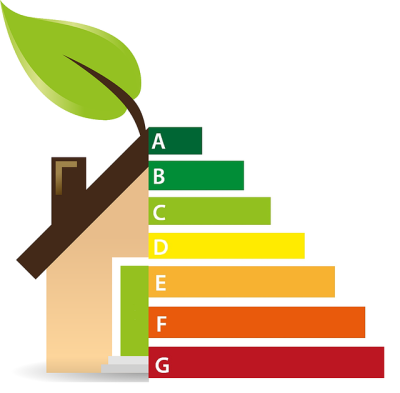When shopping for a new water heater, you’ve likely come across stickers plastered on the units showcasing their energy efficiency ratings. These labels, while crucial, can sometimes confuse the average consumer, making the buying decision more challenging. The truth is, understanding these ratings is the key to ensuring you get a unit that’s both efficient and cost-effective for your home.
In this post, we’ll break down the most common energy efficiency labels on water heaters, helping you make a more informed decision.
1. Energy Factor (EF)
The Energy Factor, commonly abbreviated as EF, is a measure of a water heater’s overall energy efficiency. The higher the EF rating, the more energy-efficient the unit is. Specifically, it indicates how effectively the heater converts energy (like electricity or gas) into hot water.
For instance, a unit with an EF rating of 0.9 will convert 90% of its energy input into hot water, while the remaining 10% is lost during the heating process. It’s worth noting that while electric heaters generally have higher EF ratings than gas models, they often have higher operational costs.
Speaking of these water heaters, while they might need occasional gas water heater repair, they tend to last longer and can be more cost-effective in regions where gas is cheaper than electricity.
2. First Hour Rating (FHR)
The First Hour Rating, or FHR, represents the amount of hot water the heater can supply within the first hour of use. It’s an essential factor if you have high hot water needs, especially during specific times of the day.
For instance, if your morning routine involves multiple showers, dishwashing, and laundry, you’ll want a water heater with a high FHR to ensure everyone gets their fair share of hot water.
3. Uniform Energy Factor (UEF)
A newer measure of efficiency, the Uniform Energy Factor (UEF), has been introduced to provide a more accurate and consistent benchmark for comparing different models. It considers various factors, such as standby losses and cycling losses, which EF might not always account for.
In simple terms, UEF gives a better overall picture of how efficient the water heater is during typical household usage. Always opt for a unit with a higher UEF rating, as it’ll likely save you more in the long run.
4. Standby Loss
Standby loss refers to the amount of heat lost per hour from the stored water compared to the heat content of the water. This is crucial for storage water heaters which keep a tank of hot water at the ready.
A lower standby loss means that the unit is better insulated, which in turn means less energy is wasted in keeping the water hot.
5. Cycling Loss
Cycling loss pertains to the loss of heat as the water circulates through the water heater tank and the main water pipes. Just like the standby loss, a lower cycling loss indicates better efficiency. However, this measure is often more crucial for tankless or on-demand water heaters.
6. Solar Energy Factor (SEF)
For those considering solar water heaters, the Solar Energy Factor (SEF) is a significant rating to understand. It measures the energy efficiency of solar water heating systems. A higher SEF means better efficiency.
Typically, solar water heaters have SEF ratings ranging between 1.0 and 11.0. However, the operational cost savings due to the use of solar energy often makes up for the initial investment in the long run.
7. Estimated Annual Operating Cost
While not exactly a rating, the estimated annual operating cost gives buyers an idea of how much they can expect to spend running the unit every year. This can vary based on local utility rates and usage patterns. It’s a useful tool for comparing potential long-term costs between different models.
Conclusion
With an array of energy efficiency labels and ratings, purchasing a water heater can sometimes feel like navigating a maze. However, by understanding what each rating signifies and how it impacts your water heater’s performance and operational costs, you can confidently choose a model that’s both efficient and right for your home’s needs.
Remember, investing in an efficient water heater doesn’t just lead to monetary savings but also contributes to a reduced carbon footprint, promoting a greener environment. Always consider the balance between upfront costs and long-term savings.












